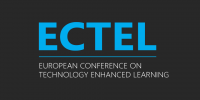Conference Theme
Educating for a new future: Making sense of technology-enhanced learning adoption
In the past two decades, many educational technologies emerged and evolved along with the growing attention for ‘the Web’ and ‘the Internet’. Throughout this road, researchers and practitioners have designed and implemented different types of strategies, tools, services, and devices to improve learning for a wide range of students. Many studies have been carried out by our community that describe promising technologicalies underpinnings that have benefited different educational contexts around the world. However, nobody had ever seen the increased mainstream adoption of educational technologies that has been observed since the outbreak of the COVID-19 pandemic. The current context gives rise to several questions such as: What is the purpose of education in the current context of societal transformation? How do learning technologies support this new purpose? How do we ensure that technology is a means to make education more inclusive? In that sense, this EC-TEL conference provides us with an opportunity to search for an answer for some of these questions, and to explore different topics concerning the future of education.
We invite contributions for research papers, demonstrations, posters as well as workshops. A doctoral consortium will be organised concurrently with the workshops.
Conference Topics
The topics of interest are grouped into the following six blocks:
- Pedagogical and theoretical underpinning,
- Technological underpinning,
- Individual, social, and organisational learning processes,
- Ethics, privacy, regulations, and policies,
- Learning communities and contexts,
- Global teaching and learning.
From both research and innovative practice perspectives the following topics of interest to the conference include, but are not limited to:
Pedagogical and theoretical underpinning
- Active learning
- Problem-and project-based learning
- Flipped classroom
- Competency-based education and training
- Inquiry-based, exploratory, and discovery learning
- Computer-supported collaborative learning and cooperative work
- Communities of learners and communities of practice
- Learning design and design approaches
- Teaching techniques and strategies for digital learning
- Game-based and simulation-based learning
- Storytelling and reflection-based learning
- Technology-enhanced orchestration of learning
- Learner well-being, affect, motivation, engagement, skills, attitudes, and value
Technological underpinning
- Mobile, wearable, and pervasive technologies
- Sensors, sensor networks, and Internet of Things
- Roomware, ambient displays, and ubiquitous devices
- Robots
- Remote and virtual labs
- Augmented reality, virtual reality, and mixed reality
- Serious games, simulations, and 3D virtual worlds
- Interactive, context-aware, personalised, and adaptive learning systems
- Visualisation techniques and dashboards
- Learning analytics
- Artificial intelligence
- Educational data mining and process mining
- Recommender systems
- Natural language processing and latent semantic analysis
- Semantic Web
- Social computing and social media
- Infrastructures and architectures
- Large-scale learning systems
- Specifications and standards
- Interoperability and sharing of devices, tools, architectures, and data
Individual, social & organisational learning processes
- Cognitive and metacognitive mechanisms in knowledge acquisition and construction
- Self-regulated and self-directed learning
- Reflective learning
- Strategies for the development of 21st century skills
- Computational thinking
- Social processes in teams and communities
- Bring your own device (BYOD)
- Group and collaborative work
- Assessment of/for/as learning (formative, summative, self-, peer- assessment)
- Social awareness
- Sensemaking and Meaning Making
- Knowledge management and organisational learning
- Collaborative knowledge building
Ethics, privacy, regulations and policies
- Ethics and privacy for data gathering, storage, processing, and presentation
- Data privacy
- Regulations and policies related to educational data
- Strategies to handle ethics and privacy for handling educational data
Learning communities and contexts
- Formal education: K-12
- Formal education: higher education
- Lifelong learning
- Informal and non-formal learning
- Interprofessional and Interdisciplinary Learning
- Vocational education and training
- Seamless learning
- Teacher education and professionalization
- Tutoring and student support
Global teaching and learning
- Global challenges
- Massive Open Online Courses (MOOC)
- Smart Learning Environments (SLEs)
- Open educational resources (OER)
- Learning Networks
- Teacher Networks
- Learning ecologies, learning ecosystems, fitness and evolvability of learning environments
- Business models
- Micro-credentials
Quality education for underrepresented groups
- Digital and generation divide and learning
- Teaching and learning in rural and isolated areas
- Inclusive, equitable, and accessible learning
- Standards about accessibility and learning
- Promotion of learning and employability within underrepresented groups and communities
- Learning of students of underrepresented groups, including students with special needs
- Psycho-pedagogical support for users
